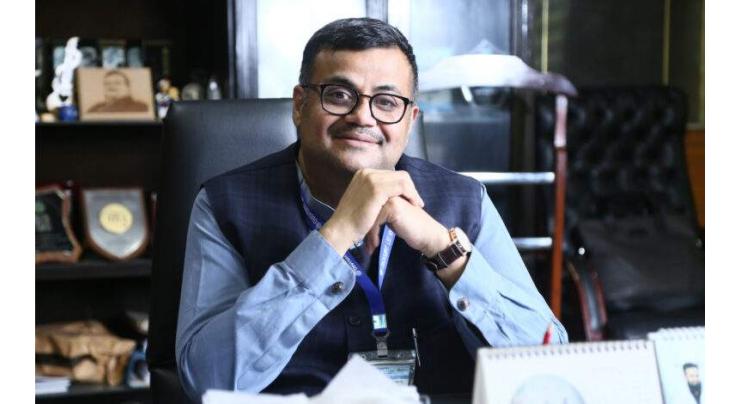
I have been closely monitoring all vice-chancellors before me for being a member of their teams. I find myself relaxed while maintaining the continuity of policy and the advancement with changing times, says Dr. Tauha Hussain Ali, Vice Chancellor, Mehran University of Engineering & Technology (MUET), Jamshoro in a special interview with Engineering Review.
We are entering into Industry Revolution 4.0 and we are required to lead undergraduates to the times of this revolution I find myself fortunate to be settled in this position and lead it.
Leadership roles
Running the university with my style is better than following my predecessors’ who put the system in place. I and my team fully understand the system and the prime objective is to improve the system.
Vision 2030 – ‘RISE’ is making a difference
We had a vision already. Maybe it was restricted to concepts only. What I, with my team, have done is to enshrine it keeping in view the most modern demands of the day, and have incorporated it into the system. It is making a difference—a feat of appreciation.
Salient features of ‘RISE’ (Research, Innovation, Sustainability, Entrepreneurship)
Vision 2030 is student-centric. We believe if the students are not content with the standard of education and the level of facilities and in return not agree to carry the brand name of the university then all our efforts will be in vain.
Liaison with industry
Collaboration with industry is a basic prerequisite for the identity of any university. No research, be it community-based, commercial, or impact-related, can bear any fruit unless it is in liaison with the industry. I have made endeavors to bring the university closer to the industry. We have opened ourselves to the industry so that we can solve their problems. USAID Water Center is just one to float as an example. Numerous national and international donors are now approaching the university to use the capacity and ability of the institution.
Role of Alumni and Vision 2030
We need the experience, capability, and competence of our alumni rather than their money. They must move forward to take care of their alma mater and be part of students’ training and enhancement efforts. This role is embedded in our vision.
Infrastructure for industry-academia liaison
The concept of entrepreneurship is failing in practice in our universities and one of the major causes is the absence of an echo system for entrepreneurship. The system of education especially the syllabus and attendance etc. needs to be transformed so that the students are able to become entrepreneurs. Also, engineers have ideas and they must be equipped with the ability to sell them. They must either collaborate with the industry or with business universities. therefore, many things should be changed.
Engagement with industry turning fruitful
We are reviewing our curriculum keeping in mind the feedback of the industry we are in liaison with. We have sought their input as to what kind of changes should be made so that the students are ready to perform in the industry from the very onset. I think the present system of internships also needs to change and the students should go into the industry for a longer term {let’s say 4 to 6 months} before completing their final years in the university; a few weeks period does not work.
Money matters
Universities have no way but to vie for sustainability. Things are moving in this direction at all levels—government, regulatory bodies, and universities. Regulatory bodies should allow the institutions to move towards commercialization linked with engineering education and the financial benefits of the university. For instance, MUET, Jamshoro has enough land to offer for setting up solar or wind parks. The industry may invest and give dividends to the university whose students can benefit through working with solar or wind power companies. Also, the universities can establish technology parks and the authorities can declare them tax-free zones. We have moved ahead keeping in view some good ideas of Sindh’s investment board. We are in the advanced stage of talks with some companies. The Sindh government is extending a helping hand to the universities as regards the solarization of the universities.
Expanding academic side
We are running 26 programs through 18 departments. We have introduced 5 new programs during the last two years. These include AI and Cybersecurity and also technology programs. This is because our students pay attention to technology rather than engineering which seems to be shrinking over the years.
